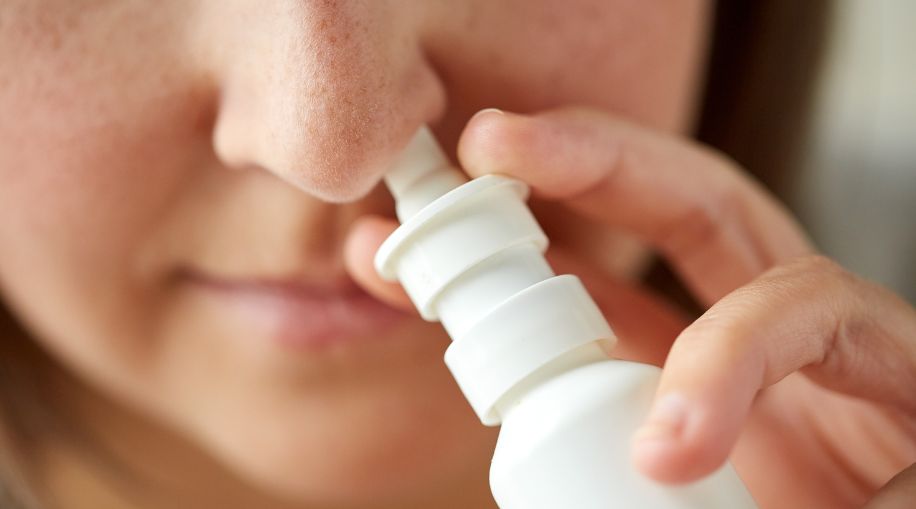Nasal Polyps Treatment
Nasal polyps are often caused by long-term inflammation. This condition can make it hard to breathe through the nose. To help, there's Mepolizumab (nucala), which is used to treat nasal polyps, particularly in individuals with chronic rhinosinusitis (CRS).
Mepolizumab (Nucala)
One of the most effective treatments for nasal polyps is Mepolizumab (Nucala). This is a type of medicine known as a biologic, which is used when other treatments do not work. Mepolizumab helps reduce inflammation in the sinuses by lowering the number of certain types of white blood cells called eosinophils.
Eosinophils are linked to inflammation in the body and contribute to the growth of nasal polyps. By reducing these cells, Mepolizumab can help shrink polyps and improve symptoms like blocked noses and sinus pressure. This medicine is given by an injection once every four weeks.
Nasal Steroid Sprays
Another common treatment for nasal polyps is nasal steroid sprays. These sprays are often the first treatment doctors try because they can reduce swelling and inflammation inside the nose. Steroid sprays like fluticasone or mometasone are used directly in the nose, helping to shrink polyps and reduce congestion. While they can be very helpful, it can take a few weeks to notice an improvement. It's important to use these sprays as directed by your doctor to get the best results.
Oral Steroids
Sometimes, your doctor might prescribe oral steroids, like prednisone, to help reduce inflammation more quickly. These pills can work well in shrinking polyps, but they are usually only used for short periods because they can have side effects if taken for too long. Doctors often recommend oral steroids if nasal sprays are not strong enough to manage your symptoms.
Surgery
If other treatments do not work, surgery may be needed to remove the nasal polyps. Surgery is typically considered for people who have large polyps that block the sinuses or for those who do not improve with other treatments. The most common surgery for nasal polyps is called endoscopic sinus surgery. This procedure is done using a small camera inserted into the nose to remove the polyps. The surgery usually doesn’t require cuts on the outside of your face and can often be done as an outpatient procedure.
After surgery, your doctor may still recommend nasal steroid sprays to prevent the polyps from coming back. It’s important to follow your doctor’s instructions after surgery to ensure the best chance of success and to keep your sinuses clear.
Other Treatments
In addition to medicines and surgery, there are other things you can do at home to help manage nasal polyps:
- Saline nasal irrigation: Rinsing your nasal passages with saltwater can help clear mucus and allergens from the nose, making it easier to breathe.
- Humidifiers: Using a humidifier in your home can add moisture to the air, which can help prevent the nasal passages from drying out and becoming irritated.
- Allergy treatments: If allergies are causing your nasal polyps, treating the allergies with antihistamines or allergy shots may help reduce inflammation and polyps.
When to See a Doctor
If you have a stuffy nose that lasts more than a few weeks or you notice other symptoms like a loss of smell, facial pain or pressure, it’s a good idea to see a doctor. They can help diagnose the problem and suggest the right treatment for your condition. In some cases, untreated nasal polyps can lead to further complications, so it’s important to take steps to manage the condition.
How to Shrink Nasal Polyps
Nasal polyps can make life uncomfortable, but with the right treatment, you can manage the symptoms. Mepolizumab (Nucala) is a strong option for people with severe polyps, and nasal steroid sprays and oral steroids are commonly used to reduce inflammation. In some cases, surgery may be needed to remove polyps. Remember, it’s important to talk to your doctor about the best treatment plan for you. With the right care, you can breathe easier and feel better.
